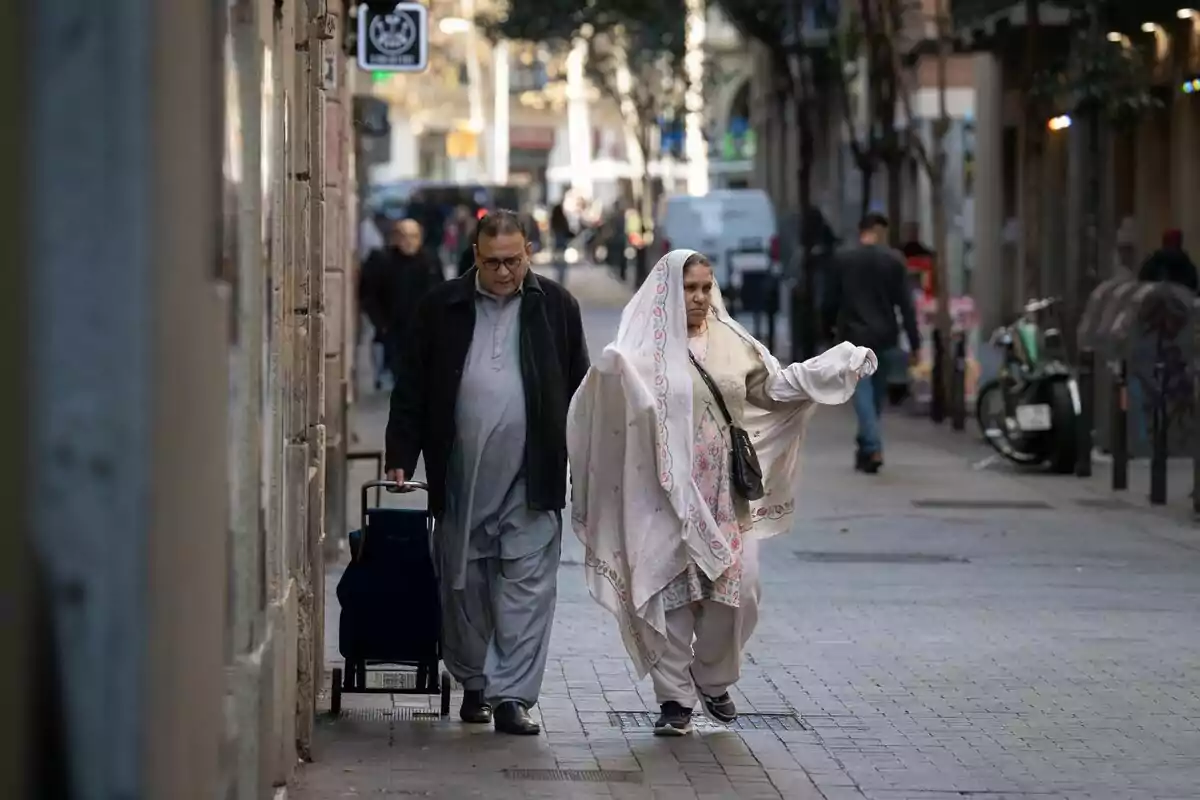
The Report to 'Not End Up Like France' Shared by Alejandro Fernández
The NEOS Foundation emphasizes that the 'effectiveness' of migration policy is essential for the stability of our societies
Immigration is the major issue. Recently, the migration question has been placed at the center of the debate, and no topic is free from its influence. From the housing market to public safety and including integration.
If one looks with a bit of perspective, Western societies have radically changed their minds. From Chancellor Merkel's open doors, we have moved to the tightening of the EU's migration policy. Although there is no need to leave Catalonia to see these changes: from the famous Volem Acollir we have moved to suspicion.
In ideological terms, idealism is declining, and it is now clear that immigration has many more facets than humanitarian ones. This is what the leader of the PP in Catalonia, Alejandro Fernández, has claimed, referring to a report by the NEOS foundation. "If we don't want to end up like France or Belgium on this matter, we must act now," Fernández warns:

Key Points of the Report
With the title Immigration in Spain: Idealism or Effectiveness, this report aims to shed light on the migration debate. Its starting point is the need to frame the problem in realism and effectiveness, without ignoring the most thorny points. "The discussion should focus on the amount of immigration, its origin, pace, and how to integrate it, respecting the absorption capacity of the host country," the report states.
In this regard, governments (and the media) are urged to accept two basic theses. The first is the difference between a refugee and an economic immigrant, and the second is that host states must follow a policy of "selective immigration." Otherwise, the welfare capacities of the host country become saturated, and everyone ends up losing, both natives and foreigners.
"Passive migration management, tolerant of irregularity and the use of cyclical regularizations, must be replaced by an active and strategic policy that ensures balance with regular and selected immigration," the report states in its eighth recommendation. In other words, migration passivity, expressed in open doors, is the worst policy.
These recommendations are more relevant than ever because it is common to compare Maghreb immigration with Ukrainian refugees, who are fleeing a war. This is why, among Ukrainian refugees, there were indeed women, girls, boys, the elderly, men, and women of different ages. Among Maghreb immigration, however, a clear pattern is observed: the vast majority are young men.
Finally, the report doesn't hesitate to point out that the current migration policy is incapable of offering full and real integration. There are four indicators that prove this: lower income figures than natives, educational delay, community endogamy, and relatively high crime rates. Again, just analyzing the Catalan case is enough to notice this pattern.
More posts: